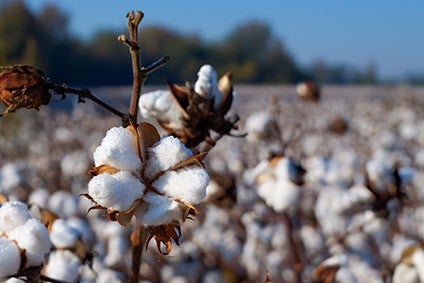
With 13 weeks left of the 2021/22 cotton season, it appears area, production and consumption will all be up year-over-year, according to the latest update from the International Cotton Advisory Committee (ICAC).
One of the few exceptions is world trade, which suffered from the many disruptions experienced throughout the supply chain due to transportation and logistics challenges.
In other words, the ICAC says demand has remained high all year — with the problem getting the fibre from one sector of the supply chain to the next, and ultimately onto store shelves and into consumers’ hands. While strong US export numbers are an encouraging sign that the problems are receding, the backlogs will take time to clear through the intricate shipping and transport system and could take many months to fully normalise, it warns.
While many countries made gains, the ICAC highlighted West Africa which it says made an “incredible turnaround”, led by Mali. After declining by 22%, cotton area in West African countries increased by 44% in 2021/22.
The Secretariat’s current price forecast of the season-average A index for 2021/22 ranges from 109 cents to 129 cents, with a midpoint at 115 cents per pound.
The ICAC recently launched a new body to represent all sectors of the cotton supply chain. It says its Private Sector Advisory Council (PSAC) means there will be an expert committee that combines perspectives and opinions from every sector of the cotton supply chain for the first time in the cotton industry.

US Tariffs are shifting - will you react or anticipate?
Don’t let policy changes catch you off guard. Stay proactive with real-time data and expert analysis.
By GlobalDataThe PSAC was born out of the success of its predecessor, the Private Sector Advisory Panel, whose members were private sector professionals from several areas of the cotton supply chain. The new PSAC is populated by executives from national, regional and international cotton and textile organisations, rather than from individual private businesses.



